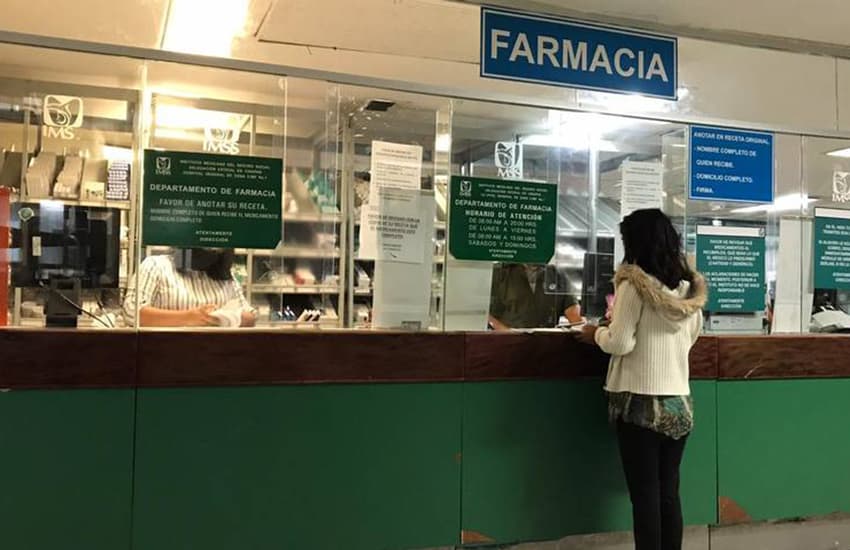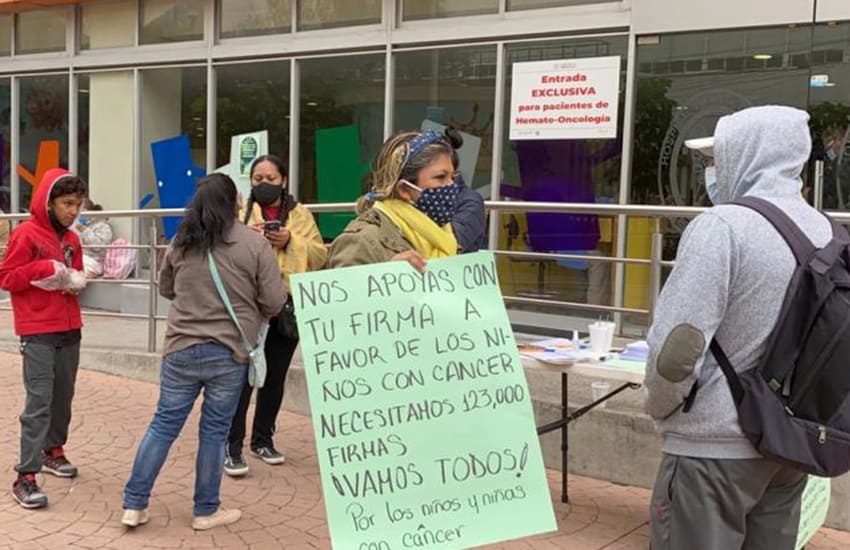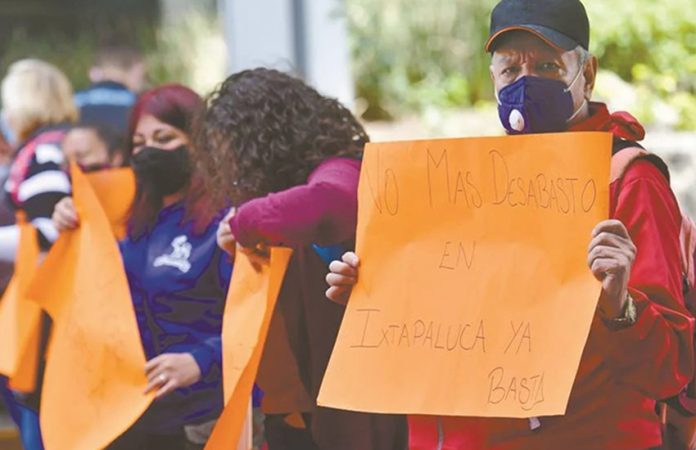Long-running protests against the shortage of medications to treat children with cancer continued on Tuesday: parents of ill boys and girls blocked access to Terminal 1 of the Mexico City airport and pledged to stay there until the federal Health Ministry resolves the problem.
About 20 mothers and fathers of cancer patients from Mexico City, México state, Veracruz and Aguascalientes joined the protest, according to the newspaper El Universal.
They said the problem of medicine shortages has worsened at the hospitals where their children are treated. Not only is there a shortage of cancer drugs but also of basic painkillers, the parents said.
“We went to the National Palace because the Interior Ministry hasn’t given us a solution,” Omar Hernández Ibarra, president of an association of parents of children with cancer, told El Universal.
“We know that the health minister is there every Tuesday with the deputy [health] minister, but we went in vain. The problem is that it’s no longer just cancer drugs that are lacking; paracetamol and diclofenac are now also in short supply, and in the [Federico Gómez] children’s hospital [in Mexico City], the MRI machine hasn’t been working for months. They refer children to other hospitals, but it needs to be fixed,” he said.

“We no longer want to be given false promises. … We won’t leave the airport until the health authorities make a commitment with a specific date of when we will have the medications that haven’t arrived for children’s chemotherapy and to calm their pain.”
El Universal reported that at about 6 p.m. Tuesday, health authorities gave the protesting parents lists of medications that have been distributed to hospitals across Mexico, but the parents said that the quantities sent are insufficient.
“They give us lists on which it’s shown they sent oxaliplatin to Campeche, dated May 2021, but they [only] sent 72 pieces; this medication lasts for an average of three weeks and then what? This has been a constant: they deliver a few medications, they promise us there won’t be shortages, but then we have to go out and protest,” Hernández said.
The medication shortages have persisted despite the federal government signing an agreement with the United Nations Office for Project Services last July to collaborate on the international purchase of medicines, medical supplies and vaccines.
The Mexican Institute for Competitiveness (Imco), a think tank, said in February that “the lack of a comprehensive medications policy that ensures competition and the proper functioning of the market has caused problems in guaranteeing people’s timely access to quality medications.”
“The implications of this failure have become pronounced during the Covid-19 pandemic; … changes in the public purchasing system to acquire medications, regulatory challenges and the lack of strategic vision in the pharmaceutical sector have caused shortages, cost overruns and a lack of transparency in purchasing processes,” Imco said.

To guarantee easy access to medications in Mexico, the think tank proposed a range of measures, including that the government increase public spending on health, plan the purchase of medications in advance and “with flexibility” and promote and coordinate dialogue between the Health Ministry and the Economy Ministry “to build a comprehensive pharmaceutical policy in favor of the development of the market.”
The federal government this week published an executive decree aimed at facilitating the direct adjudication of public purchases, especially in the health sector. As a result, the government will have greater freedom to purchase medications without having to run a competitive tendering process.
The presidential decree, which made changes to an article of a public purchasing law, “seeks to give greater flexibility to public entities to obtain the goods necessary for the performance of their functions,” the Finance Ministry said, adding that it will be particularly relevant to health sector purchases.
It remains to be seen whether the reform will help put an end to cancer drug shortages, which have plagued the country and triggered protests since 2019.
With reports from El Universal and Reforma
